Author: Sarai McDowell
Medicaid Who’s Who Interview: Tommy Duncan
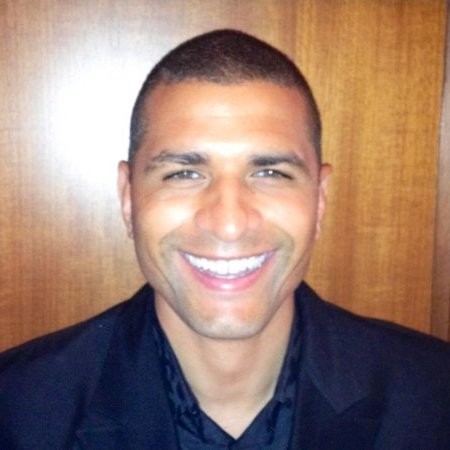
Tommy Duncan is CEO of Trusted Health Plans, Inc.
Check out his LinkedIn profile HERE.
Which segment of the industry are you currently involved?
I am the CEO of Trusted Health Plans, Inc. a Medicaid MCO with plans in Washington, DC, and Michigan.
How many years have you been in the Medicaid industry?
I have been in the industry for 10 years, however, have been exposed to the industry since childhood. My mother ran a health plan.
What is your focus/passion? (Industry related or not)
At my core, I always want to leave things better than I found them. I want to use whatever talents I have been blessed with to have a positive impact in my personal and professional endeavors. At this point in my career, that means focusing on how Trusted Health Plans can leverage its size and resources to have a meaningful and quantifiable positive impact on the overall quality and outcomes of the American healthcare system. Specifically, how can we partner at the local and national level with other leaders to address the social determinants of health that greatly influence quality of life and overall health for our Medicaid members.
My focus is on Fixing Medicaid’s cost trajectory. Medicaid has a serious cost problem that will soon surpass $1,000,000,000,000 Annually.
Policymakers have continuously failed to address the causes of this problem. Instead of taking the difficult path to find solutions that truly reduce the cost of healthcare, (which is the only way to reduce and control Medicaid spending), we put programs and policies into place following an easy path. These policies and programs never address the problem of increasing cost of care, but rather, temporarily, reduce Medicaid spending by decreasing eligibility, either through reductions in benefits or restrictions like work requirements or drug testing.
Sadly, these attacks on eligibility don’t decrease true costs; they shift the costs to different areas within the budget.
Sick people will still need access to care. With or without Medicaid those in need will see the treatment needed. Treatment usually occurs in the emergency department at a hospital, which is the most expensive cost of entry into healthcare. By law, the hospitals will have to treat the individuals without insurance. Eventually, these treatments stress the hospitals budget to the point of requiring the State to aid them and keep them open. The State will either take dollars from another area in the “budget pie,” perhaps from Education or will raise the sales tax and or income tax. Either way, taxpayers, their families, and the State loses.
The only way to control the Medicaid spending surge is through revolutionary changes to healthcare delivery. We need policy changes that remove the 85% Medical Loss Ratio (MLR) coupled with competitive price bidding for contract awards. Cost management innovations and at risk downstream contracting with providers and vendors would also produce true cost of care savings.
MCOs who get innovative with programs that control the cost of care will survive and thrive. Those that are currently happily accepting the annual increases given for Medicaid won’t survive. Without attempting to reduce true costs, these companies are part of the skyrocketing costs of care within the entire system.
We need to make changes now. We need a sustainable program of care.
As a taxpayer, father, husband,
CEO, concerned citizen, aiding in this change has become my passion.
What is the top item on your “bucket list?”
My top bucket list item would be to take a company public and ring the opening bell at the NYSE.
What do you enjoy doing most with your personal time?
Spending time with my family and watching my son’s basketball games, attending his practices are some of my most enjoyable times.
Who is your favorite historical figure and why?
My favorite historical figure is Barack Obama, who defied all odds to become President through self confidence.
What is your favorite junk food?
My favorite junk food is Salt and Vinegar Peanuts.
Of what accomplishment are you most proud?
I am proud to be an attentive partner to my wife and highly engaged father to my children.
For what one thing do you wish you could get a mulligan?
I wish I could go back and sell my Accretive stock at the high of $35.00 /share instead of the $18.00 per share that I sold.
What are the top 1-3 issues that you think will be important in Medicaid during the next 6 months?
I believe that we need to inject Capitalism into the system, and create incentives for true cost reductions by implementing the three changes to Medicaid that are outlined in my book, Trillion Dollar MEDICAID Monster.
- Remove 85% MLR
- Make managed care contracting decisions based on price
- Move all Medicaid recipients from Fee for Service programs to Managed Care
———————
Know someone in the space who’s doing great work and is an all around interesting person?
Send a note to clay@mostlymedicaid.com to nominate them for the next round of Medicaid Industry Who’s Who Interviews
Medicaid Job Hunter: 3/11/2019

We scour the internets for Medicaid jobs listings to save you time.
In this packet…
1. MEDICAL/HEALTH CARE PROGRAM ANALYST – 68053427 | State of Florida
2. Nurse Practitioner, Field (Saginaw, MI) | Molina Healthcare
3. Medicaid Behavioral Health Services Manager | The Children’s Village
4. Branch Business Manager (medicaid Pas) | Outreach Health Services
5. Behavioral Health Medical Director – Louisiana Medicaid | Humana
6. CHC Service Coordinator | UPMC Health Plan
7. Medicaid Eligibility Advocate | HCA Healthcare
8. Program Analyst. | Centers for Medicare & Medicaid Services
9. Supervisory Health Insurance Specialist. | Centers for Medicare & Medicaid Services |
10. Network Manager CA Medicaid Health Plan | Aetna, a CVS Health Company |
Patient Engagement Webinar
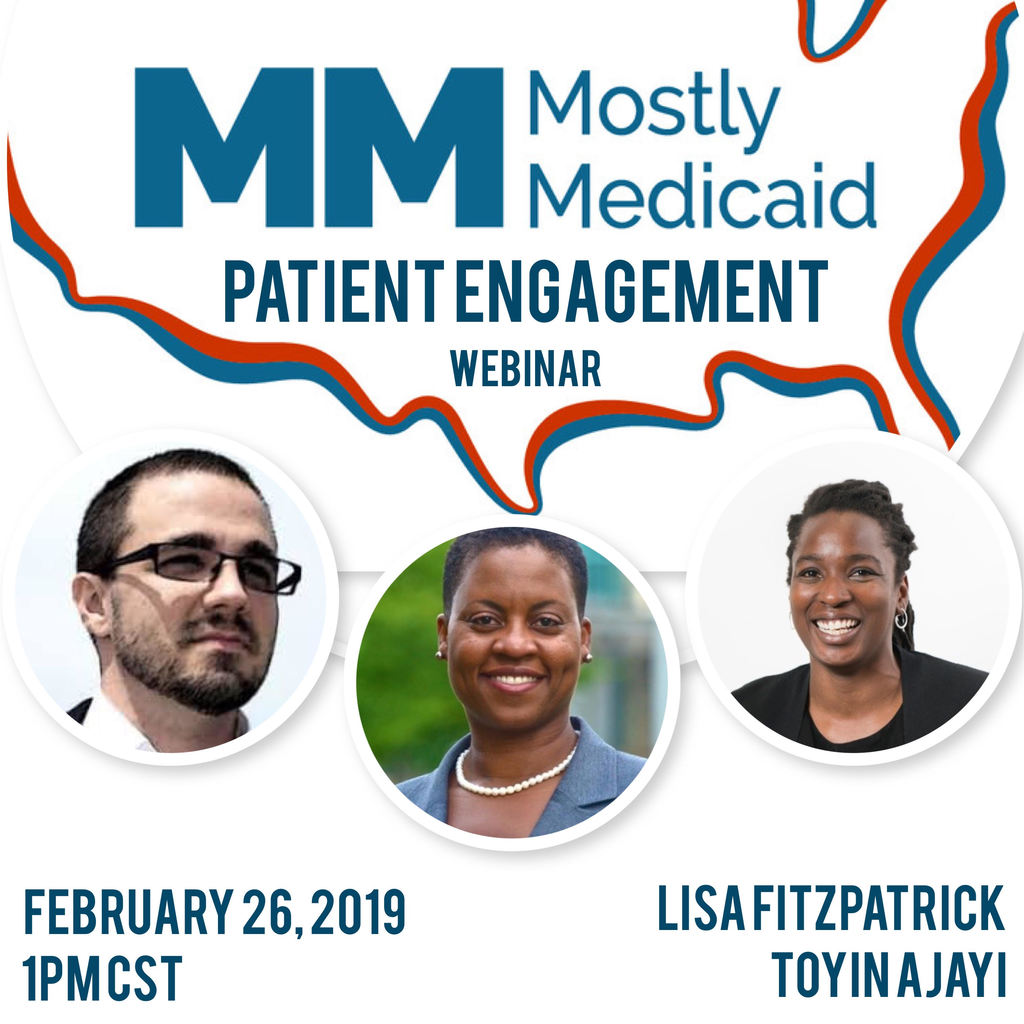
Join us as we speak with Dr. Lisa Fitzpatrick, Dr, Toyin Ajayi, and a former Medicaid member about patient engagement from a professional and personal perspective.
Medicaid Who’s Who Interview: Steven Jenkins
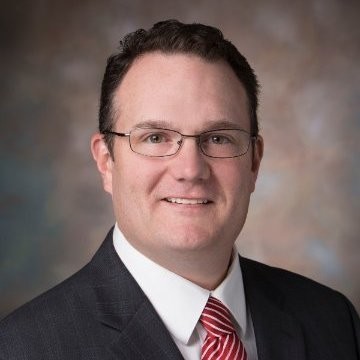
Steven Jenkins leading operations for a provider start-up.
Check out his LinkedIn profile HERE.
Which segment of the industry are you currently involved?
I presently lead the Clinical Strategy and Accreditation teams for Anthem, one of the nation’s leading health benefits companies. One in eight Americans receives coverage for their medical care through Anthem-affiliated health plans including ~6M Medicaid recipients in 21 states plus the District of Columbia.
How many years have you been in the Medicaid industry?
I began in 2001 at a small regional Medicaid plan in Memphis, TN. That plan was purchased by Amerigroup in 2007, and Amerigroup was subsequently purchased by Anthem in 2013. Since beginning my career in Medicaid close to 18 years ago, I have been fortunate to work across many different areas with some incredible leaders and outstanding teams.
What is your focus/passion? (Industry related or not)
At my core, I always want to leave things better than I found them. I want to use whatever talents I have been blessed with to have a positive impact in my personal and professional endeavors. At this point in my career, that means focusing on how Anthem can leverage its size and resources to have a meaningful and quantifiable positive impact on the overall quality and outcomes of the American healthcare system. Specifically, how can we partner at the local and national level with other leaders to address the social determinants of health that greatly influence quality of life and overall health for our Medicaid members.
What is the top item on your “bucket list?”
I’d like to visit Wales, specifically the area where my ancestors migrated from in the 1700’s.
What do you enjoy doing most with your personal time?
I love to read and am presently working my way through all of the previous Pulitzer Prize winning fiction novels. In addition to reading, I love watching movies, playing golf, and running. I’ll also admit that video games are a guilty pleasure.
Who is your favorite historical figure and why?
My favorite historical figure is Dr. Martin Luther King, Jr. I have always admired his courage and dedication to non-violent protest, and the profound impact that his work continues to have particularly in the part of the world I call home. Despite not living to see his 40th birthday, he is a true testament to how rich and impactful a life can be when dedicated to a cause larger than one’s self.
What is your favorite junk food?
Oreos. Hey, they’re vegan!
Of what accomplishment are you most proud?
Probably completing the NY Marathon in 2014. It served the triple purpose of helping me get in better shape, teaching my kids that difficult goals can be accomplished, and my wife got a few great days of shopping and sight-seeing in NYC with our only daughter.
For what one thing do you wish you could get a mulligan?
I wish I’d spent more time videotaping my kids when they were younger. We love watching those older videos and there’s never enough footage.
What are the top 1-3 issues that you think will be important in Medicaid during the next 6 months?
As we ramp-up to the 2020 election, funding and policy implications will continue to be highly politicized. I think additional key issues will include 1) impact of proposed changes to the 2016 managed care final rule, 2) Medicaid expansion, and 3) analysis of the viability of certain waivers including work requirements and the impact on further proliferation.
———————
Know someone in the space who’s doing great work and is an all around interesting person?
Send a note to clay@mostlymedicaid.com to nominate them for the next round of Medicaid Industry Who’s Who Interviews
Medicaid Who’s Who Interview: Brooke Boswell
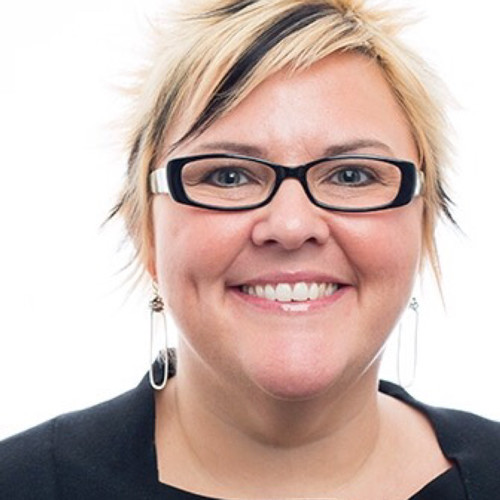
Brooke Boswell is Chief Operations Officer, Special Populations at Shared Health (BCBST)
Check out her LinkedIn profile HERE.
1. Which segment of the industry are you currently involved?
Shared Health specializes in managed care solutions for the underserved, chronically ill and long-term services and supports populations (LTSS). We utilize our 20+ years of managed care experience to help our partners better care for their members. We offer a full range of services – anywhere from consulting and a la carte administrative support to full-service agreements. My particular area is Special Populations; more specifically LTSS. One of the exciting things within Shared Health is that we are entering the Medicare space (think D-SNP) so we will get to learn something completely new. We are also looking for the next opportunity…gotta make sure Rob Summitt earns his keep!
2. How many years have you been in the Medicaid industry?
I submitted my resume on a floppy disk. Ya know…I used to be one of the youngest people on whatever team I was in…now, well…not so much! I have been in the Medicaid industry, in some form or fashion, for going on 18 years.
3. What is your focus/passion? (Industry related or not)
I had a 5th grade art teacher tell me one time, “Honey, we are here to serve.” That has been a driving passion ever since. I want to help make people’s days brighter – whether that is helping someone get the services they need, creating a process change, or telling a joke to get someone to laugh. Even though the Shared Health team has banned me from telling jokes…I sneak one in every now and then! We like to have fun over here @Shared Health. We always have some kind of fun group text going…much to Tracy Purcell’s chagrin. She has threatened to change her number if we don’t take her off the group texts.
4. What is the top item on your “bucket list?”
I would absolutely LOVE to be a back-up singer on the Grand Ole Opry! I don’t want to be front and center or in the spotlight, I just want to wear all black, stand in the back, sing harmony, dance, and maybe shake a tambourine if the mood strikes!
5. What do you enjoy doing most with your personal time?
It’s hard to pick just one! I enjoy going ‘home’ and spending time with my family. My parents live in Winchester, TN (Middle TN…close to the Jack Daniels Distillery – in fact, that was my 3rd Grade Field Trip). It is so nice to get to the country and get away from all the hustle and bustle of city life. My favorite spot in the house is the front porch. We can sit there for hours swinging, rocking, reading, talking, or just hearing the sounds of country life. We also enjoy a good bonfire, riding or hiking in the woods, and watching Daddy shoot off his canon (think 20 foot long metal pipe, 1 foot in diameter, filled with acetylene from his welder, and then light it…it makes one heck of BOOM!) It is especially fun when my nephews are there!
6. Who is your favorite historical figure and why?
I would have to say Albert Einstein. In addition to our commonality of unruly hair, I admire his ability to take extremely complex concepts and break them down to where anyone can understand them. He had so many great quotes, but one of my favorites, and one that continues to encourage me as I seek to learn and truly understand is, “If you can’t explain it simply, you don’t understand it well enough.”
7. What is your favorite junk food?
Does red wine count as a junk food?!?! By the way, that was NOT me that got banned from Wal-Mart by riding around on an electric scooter drinking wine from a Pringles can…although, I did use the Pringles concept in college to sneak whiskey into the Kentucky Derby…I was obviously in the infield. In fact, I went to the Derby 4 years before I ever saw a horse! Since wine isn’t classified as a food, I choose Pizza…with really thin crust, and ranch dressing for dipping! I’m a dipper! Before you ask…Papa John’s, they know Ben Moran by name. In fact, they sent him a t-shirt that reads: “Who’s Your Papa?”. It hangs in his closet next to the one that reads “Hoosier Daddy”.
8. Of what accomplishment are you most proud?
Helping to implement Tennessee’s LTSS program for BCBST in 2010, and joining the Shared Health team in 2014 to help other Health Plans outside of Tennessee to develop, implement and operate their LTSS programs. In addition, being part of a “start-up” company that has been profitable since our inception 5 years ago…this definitely keeps our token bean counter, Will Aclin, happy. I am blessed to be a part of the Shared Health team – I could not have hand-picked a better group of folks to work with!
9. For what one thing do you wish you could get a mulligan?
I am a firm believer that everything happens for a reason…(and now I hear John Cole in my ear saying “Yeah, sometimes that reason is because you made a bad decision”). I feel like I am meant to be where I am at this point in my life, and if I had done things differently, I would likely be elsewhere. However; if I had to choose one, I would have gone to Nursing School. But, after cramming 4 years of undergrad into 7 years, I don’t think I have it in me! For some reason, after watching Billy Madison, I don’t think school would be as ‘fun’ the second time around!
10. What are the top 1-3 issues that you think will be important in Medicaid during the next 6 months?
Special Needs Plans (i.e., D-SNP, FIDE SNP, I-SNP) and their role in managing and/or coordinating with the LTSS Population
Increase in Primary Care Case Management (PCCM) Models
Innovative approaches to addressing Social Determinants of Health
———————
Know someone in the space who’s doing great work and is an all around interesting person?
Send a note to clay@mostlymedicaid.com to nominate them for the next round of Medicaid Industry Who’s Who Interviews
Medicaid Who’s Who Interview: Richard Edwards

Richard Edwards is Chief Program Officer at Community Based Care, LLC
Check out his LinkedIn profile HERE.
Which segment of the industry are you currently involved?
Community Based Care and its family of providers serve people who have long-term service and support needs, primarily with intellectual and/or developmental disabilities, most often through Home and Community Based Services.
How many years have you been in the Medicaid industry?
I’ve been in behavioral health, broadly speaking, since 1995 — mostly as a member of provider organizations.
What is your focus/passion? (Industry related or not)
Within the industry, I’m especially interested in the balance between the civil rights origins of our field — deinstitutionalization; access; reasonable accommodations — and the need to integrate with healthcare systems and models of care. We have — especially since deinstitutionalization — built habilitation and community integration into the Medicaid system, and in some very significant ways, it has never been a perfect fit, because of the influence of the medical model over healthcare funding structures. The fee-for-service reimbursement system is a good example: a procedure or service or medication might address a symptom, but it does not make us healthy. Extending that concept, being healthy is a goal, but it is not the only or even the ultimate goal. Better health provides a foundation on which other quality of life pillars can be built. We seek to aid people in achieving their best possible health so that they can have an improved quality of life. Public funding sources like Medicaid, in this sense, help people with extraordinary challenges do very ordinary things that most people — including me — take for granted. That is what keeps me coming back to this work.
What is the top item on your “bucket list?”
Outside of work, seeing the Northern Lights. Something I haven’t done.
What do you enjoy doing most with your personal time?
I am happily married with two amazing daughters — spending time with my family is very important to me. If we can be outside together — that’s a perfect afternoon.
Who is your favorite historical figure and why?
Difficult question, but I would say Martin Luther King Jr. — a prophet for our times, speaking to the most difficult issues of our culture. To borrow several phrases, his words leave you with no defense; his actions bent the arc of history. His life, speeches, and writings have had a permanent effect on how we talk and think about racism, prejudice, and discrimination.
What is your favorite junk food?
Peanut M&Ms. I can’t (won’t) walk past a bowl without grabbing a handful.
Of what accomplishment are you most proud?
There isn’t anything in my career, or my life, that I have accomplished on my own, so it feels a little awkward to say “proud”. I think my greatest accomplishments are still ahead of me. And, even then, I am sure I will benefit from a lot of help.
For what one thing do you wish you could get a mulligan?
Only one? The good news in life and work is there will always be more tests to bring your average up — if you take the time to assess and learn from your mistakes. If I had to pick one, not the biggest mistake I ever made, but just stupid on purpose…I once spouted off to a friend over email — commiserating with her about a workplace change that I knew there were multiple sides to, but, we were old friends, and I was just trying to be sympathetic. That email got forwarded (inadvertently) to my supervisor who was, in part, responsible for the change, and who took my jerky comments very personally. I caused a lot of pain with my thoughtlessness, to someone whom I very much respected. I learned several lessons on that one. Years later, I’m still sorry about it.
What are the top 1-3 issues that you think will be important in Medicaid during the next 6 months?
Addressing constitutionality questions about the ACA will drive activity at the state levels where expansion is still in discussion. In my home state of NC, for instance, there is a lot of interest across the political spectrum in expanding Medicaid, in some limited fashion, but questions about the status of the ACA could delay any serious conversation. Success/failure of new models — like the I/DD Health Home model in NY — to address integrating healthcare and long-term services and supports for people with I/DD. Some of these models are very promising but combining these two practices has always been harder than it looks. While these models are new and should be given time to mature, I think their viability will be evident sooner than later.
Know someone in the space who’s doing great work and is an all around interesting person?
Send a note to clay@mostlymedicaid.com to nominate them for the next round of Medicaid Industry Who’s Who Interviews.
February 2019 Medicaid News Roundtable
A lot happens in Medicaid in 30 days.
We cover it all in 60 minutes with our distinguished panel this month –
Virgil Dickson, Jerry Dubberly, and Jon Hamdorf.
Medicaid Who’s Who Interview: Deborah Watkins
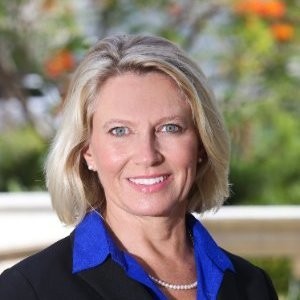
Deborah Watkins is Founder and Chief Disruption Officer of Care Bridge International.
Check out her LinkedIn profile HERE.
Which segment of the industry are you currently involved?
Health Data Analytics, specifically involving bodily injury claims. About 20% of workers comp and auto injury claimants have serious enough injuries to qualify for Social Security Disability Benefits, followed by Medicare benefits. A percentage of those individuals eventually receive Medicaid benefits due to the severity of their injuries and income constraints. There is a real opportunity to ensure these individuals receive quality care to promote their independence, while preserving and maximizing these State & Federal funding resources to improve outcomes, but also to ensure the fiscally responsible use of these funds.
How many years have you been in the Medicaid industry?
On the insurance side, over 18 years, but have been in the healthcare space my entire career.
What is your focus/passion? (Industry related or not)
Dual Eligibles, individuals who receive both Medicare and Medicaid benefits, as these individuals are the most compromised and most vulnerable in our healthcare system. This small subgroup consumes the largest portion of our healthcare dollars having a big impact on our healthcare GDP. Being a small part of the solution in the healthcare delivery and payer systems, is my passion.
What is the top item on your “bucket list?”
To snorkel or scuba dive with humpback whales. I have had an interest in whales since childhood and want to get as close as safely possible.
What do you enjoy doing most with your personal time?
I’m an outdoor girl and enjoy out-of-door activities, particularly trekking in scenic places around the world and downhill skiing.
Who is your favorite historical figure and why?
Abraham Lincoln. He was our President during a very polarizing time in our country’s history during the Civil War and is one of our most respected Presidents. In addition, he experienced tragedy in his own personal life including the loss of his mother at age 9 and the death of a son that led to his wife’s mental health issues, so he was a man familiar with tragedy, yet very resilient. I admire that, because I have a daughter who had an acute head injury at age 9 and suffers with chronic, intractable epilepsy. I understand at a personal level the pain of loss and the challenges caregivers face in navigating a fragmented delivery system and the need for a Medicaid safety net. The story of Honest Abe gives me hope that we can successfully solve our healthcare crisis and reunite.
What is your favorite junk food?
Salt Water Taffy, I love its sticky sweet taste that melts in your mouth; it reminds me of the Boardwalk in Ocean City, MD, not far from where I grew up.
Of what accomplishment are you most proud?
Being an advocate for my daughter, successfully navigating both the healthcare and education systems and adult community resources to help her live as healthy and full a life as possible, to achieve her highest potential despite her afflictions.
For what one thing do you wish you could get a mulligan?
Well, there are many! But for public consumption, I would like to get back the hours of vacation that I worked instead of enjoying that vacation. Time off, disconnecting from the laptop and the stresses of work, is important to maintaining balance and well-being. Vacation is important for restoration. I encourage my own employees to use their time off for that purpose, and stop checking email!
What are the top 1-3 issues that you think will be important in Medicaid during the next 6 months?
I think the most important issues involve, not just figuring out how or how much to fund Medicaid, but how best to manage these funds. Throwing money at a program is not the solution, understanding how best to deliver care to Medicaid beneficiaries in the most cost-effective way to obtain the best possible health outcomes is a complex task, but this is what needs to be done. The use of Data analytics offers a powerful means to learning and understanding and seeing the problems and solutions more clearly. Engaging and gathering Data from all stakeholders including payers, beneficiaries, community leaders, caregivers, providers, facilities, pharmacies, and more to create a better understanding of where the opportunities are to build a more efficient ecosystem is what I believe should be the focus in the next six months. It is the hard, but important work that needs to be done to strip out biases’ and false assumptions that are holding us back from better serving the Medicaid population.
Know someone in the space who’s doing great work and is an all around interesting person?
Send a note to clay@mostlymedicaid.com to nominate them for the next round of Medicaid Industry Who’s Who Interviews.
Medicaid Who’s Who Interview: Benjy Green
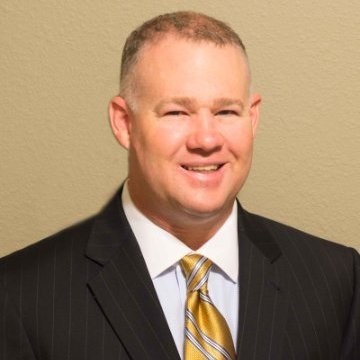
Benjy Green is Vice President, Business Development of Magellan Health.
Check out his LinkedIn profile HERE.
1. Which segment of the industry are you currently involved?
I have been at Magellan for about 18 months now, and loving it. I’m currently working on various Medicaid RFPs, ranging from LTSS to TANF populations in different states.
2. How many years have you been in the Medicaid industry?
I have over ~20 years experience in Medicaid and Government programs, with areas of focus including provider, state, federal and managed care organizations.
3. What is your focus/passion? (Industry related or not)
My number one focus is my wonderful family, wife Amanda and three teenagers (Ben, Zach and Kate). Outside of that is my passion to help the underserved and vulnerable populations.
I stumbled into this career path by starting in the business office of a small provider. I quickly felt the desire to do more for this population and transitioned into state employment at a Texas Medicaid Agency. I can’t imagine doing anything else, this is what drives me.
4. What is the top item on your “bucket list?”
I’m not sure I have one top item, but we love to travel. We are looking at options in Europe in the near future and plan to visit Scotland for my 50th in a few years to play St. Andrews, the home of golf.
5. What do you enjoy doing most with your personal time?
Spending time with my family, friends, including my four legged friends. My family is heavily involved with the DFW Labrador Retriever Rescue Club, so in addition to our Jack Russel (Scooter) two labs (Bria and Kenner), we often have a foster dog running around as well. I also enjoy as much golf as I can get in.
6. Who is your favorite historical figure and why?
I’m not sure I could pick just one. But if hard pressed, I’d go with any of our country’s founders. They were a complimentary mix of writers, philosophers, and politicians who not only led the revolution, but had the foresight to put the structure of this great country in place hundreds of years ago.
7. What is your favorite junk food?
I love chocolate and anything covered in chocolate.
8. Of what accomplishment are you most proud?
I am a first generation college graduate with a Master’s degree. Even though my parents didn’t have the means or opportunity to attend college, they understood the importance of higher education, and pushed my brother and me to graduate from college. As a parent myself, I share the same philosophy, and will do everything possible for my children to have the same opportunities that I did.
9. For what one thing do you wish you could get a mulligan?
Running for my neighborhood HOA board! (This is my sense of humor coming through, if you don’t know me personally).
In all seriousness, I’m not a fan of mulligans on the course and therefore wouldn’t take one in life either. I feel the decisions, good or bad, have lead me to where I am today, both professionally and personally. I’m living my best life today, and am very thankful for the experiences that have gotten me to this place.
10. What are the top 1-3 issues that you think will be important in Medicaid during the next 6 months?
Approach to “managing” members – historically the focus has been on managing the physical health of Medicaid populations. As organizations dig deeper into the data, it’s becoming apparent to be successful we must focus on the behavioral diagnoses (where applicable), then the physical. Here at Magellan, with our more than 40 years of behavioral experience, we are evolving our approach which is making a difference, especially with the vulnerable populations we are entrusted to serve. We are also using technology to our advantage to not only reach the members but gathering data from all streams (physical, behavioral and pharmacy) to better understand how we can make a difference.
SDoH – as organizations improve the importance of the interdependencies in Medicaid populations, the relevance of the Social Determinates of Health is a driver to be successful to improve outcomes within the Medicaid populations.
Opioids – this has a tremendous financial impact on all of healthcare, not just Medicaid. Everyone (payers, pharma and providers) must meet on common ground to address the epidemic and find a solution.
